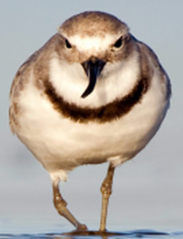Sometimes we never really think about what just seems natural to us. For me that happened about the symmetry in nature.
My daughter asked me one of those child’s questions: “Why do we have two ears?” I explained to her that with two ears we can distinguish the direction a sound came from. “Is that why our head is the same on both sides?” she asked. I wasn’t entirely sure, because there was the distinct possibility that humans could also function without having our external organs mirrored. After all, our internal organs aren’t exactly the same on either side. She then continued to ask about animals and why they are the same on both sides. She asked me what animals are not the same on both sides and I had to resort to Wikipedia to answer that question. I did know about the cross bill and the wrybill, but the list of animals displaying external asymmetry is quite short. Most plants also exhibit some symmetry.

Why does nature exhibit so much symmetry? It made me think. Having studied anthropology, I am used to material explanations. But it is a question that at its heart seems to puzzle scientists. The explanations are often circular reasoning: it is advantageous, because it is advantageous. Examples are given of animals preferring partners that exhibit symmetrical features. Among humans, too, we find people with symmetrical features more attractive. External asymmetry is often discerned as some fault. But that is not really an explanation.
Some suggest that symmetry makes forward movement easier. That may be true, but humans have designed asymmetrical machines that are quite successful at moving forward. Even animals that seem to be symmetrical, do not necessarily use both sides equally.
Symmetry in nature therefore is something of a mystery. Maybe the answer I gave to my daughter is ultimately the right one: “Because God made it that way.” It makes me somewhat in awe of creation and of the creator.
Well, at least until my daughter asks another question:
“What are sandflies good for?”
Blessings, Tim

